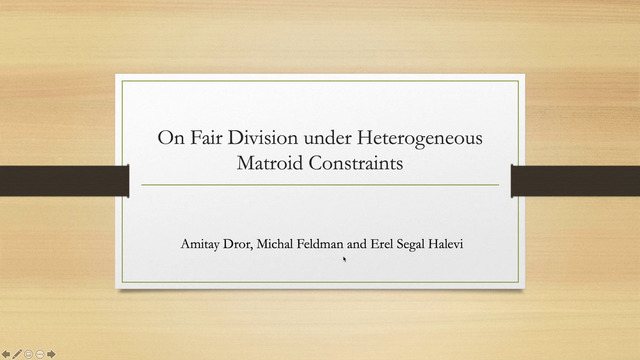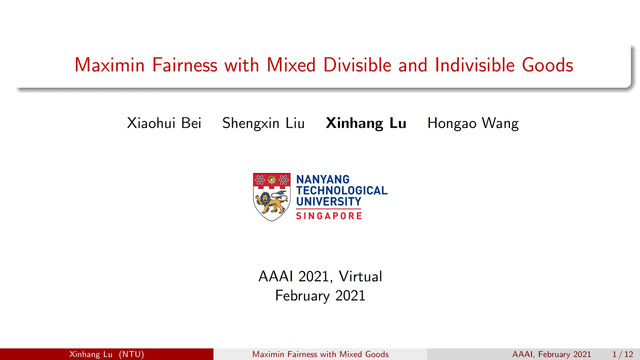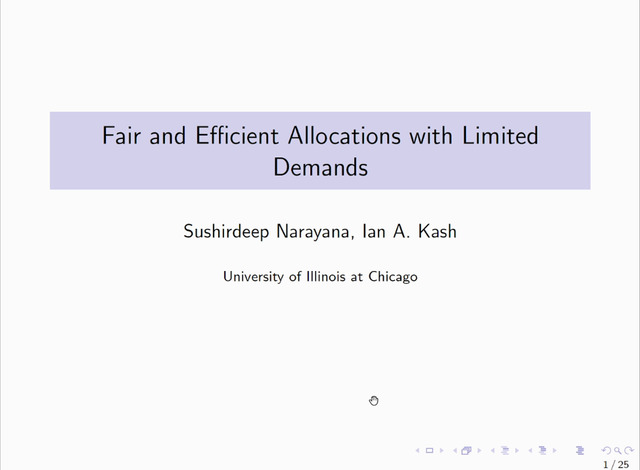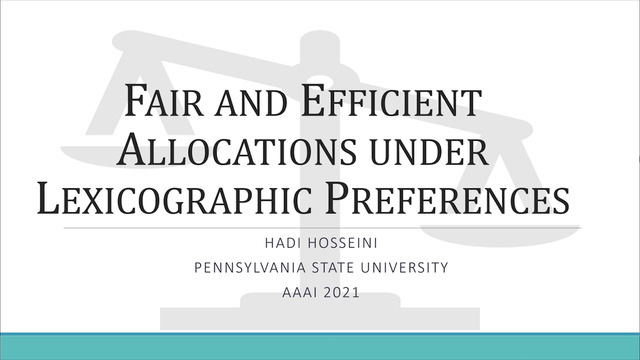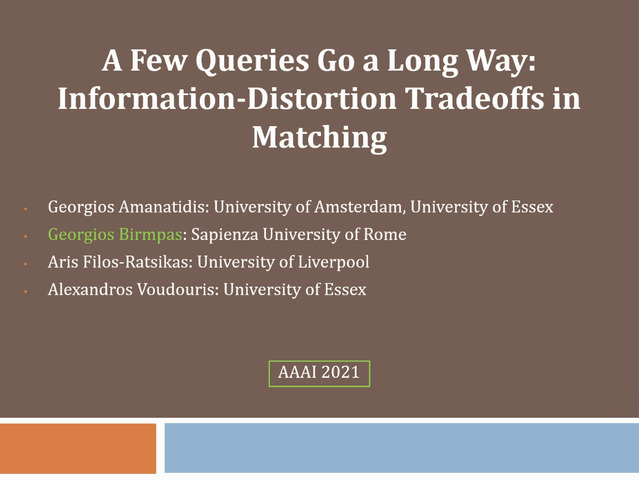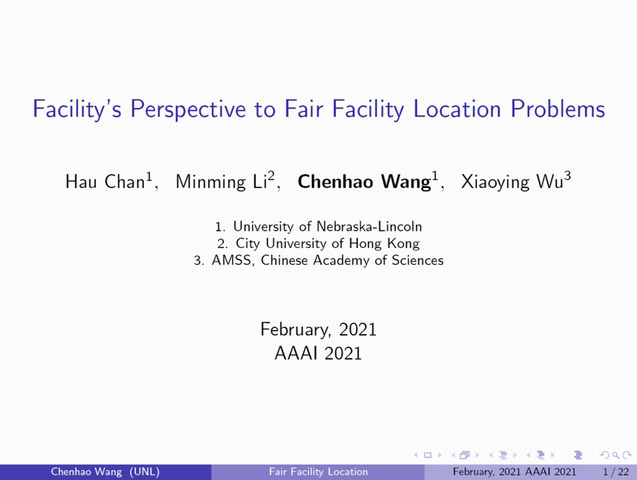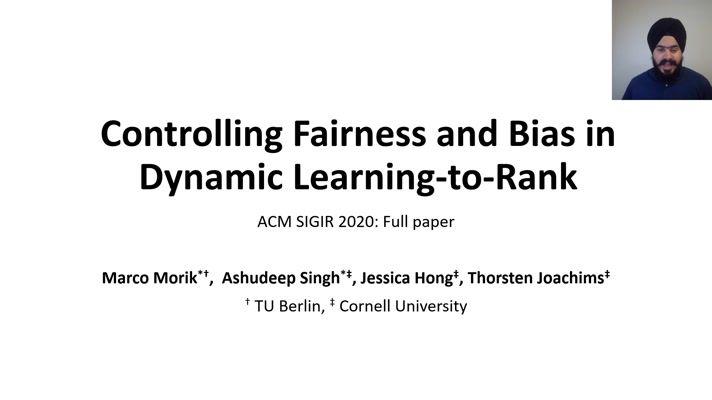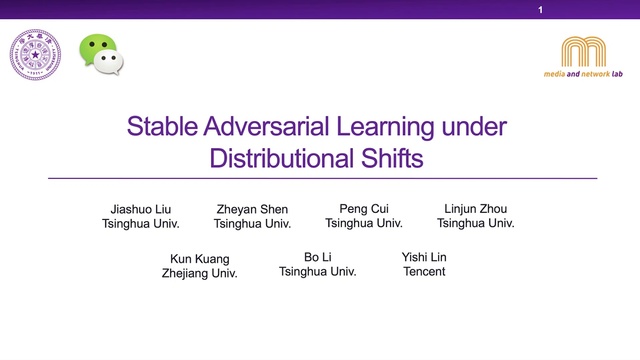Abstract:
We study fair allocation of indivisible goods among additive agents with feasibility constraints. In these settings, every agent is restricted to get a bundle among a specified set of feasible bundles. Such scenarios have been of great interest to the AI community due to their applicability to real-world problems. Following some impossibility results, we restrict attention to matroid feasibility constraints that capture natural scenarios, such as the allocation of shifts to medical doctors, and the allocation of conference papers to referees. We focus on the common fairness notion of envy-freeness up to one good (EF1). Previous algorithms for finding EF1 allocations are either restricted to agents with identical feasibility constraints, or allow free disposal of items. An open problem is the existence of EF1 complete allocations among heterogeneous agents, where the heterogeneity is both in the agents' feasibility constraints and in their valuations. In this work, we make progress on this problem by providing positive and negative results for different matroid and valuation types. Among other results, we devise poly-time algorithms for finding EF1 allocations in the following settings: (i) n agents with heterogeneous partition matroids and heterogeneous binary valuations, (ii) 2 agents with heterogeneous partition matroids and heterogeneous valuations, and (iii) at most 3 agents with heterogeneous binary valuations and identical base-orderable matroids.
